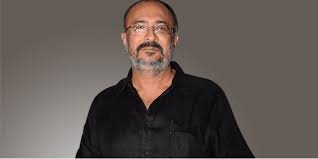Producers will be spoilt for choices: Anjum Rajabali on changing scenario of storytelling

Mumbai: Anjum Rajabali, the writer behind successful films like "Pukar" and "Rajneeti", is happy that writers are being valued but says it is yet to translate into monetary recognition.
Rajabali says a lot of young writers are joining the industry and producers will soon be spoilt for choice.
"Writing is seen as a process and it is a good thing. In the next three-four years, we are going to witness a sea change in the level of scriptwriting. I see a lot of young writers doing a good job.
"There will be a lot of good scripts floating around and producers will be spoilt for choice. It is just that the terms in the contract should become better," Rajabali, who has written "Saare Jahan Se Aacha" based on astronaut Rakesh Sharma told PTI.
Rajabali, who has also written Ajay Devgn's "The Legend of Bhagat Singh" and Farhan Akhtar's "Toofan", says the film industry is gradually realising the importance of a good story over star power.
"Over the last ten years, we have seen some improvement, now the film industry is also releasing that without a good script you can't make a successful film. Those days when you relied excessively on stars, great music, large production budget and big promos are gradually fading away.
"The audience is looking for meaningful storytelling experience and that comes from the script. Hence the value accorded to script has increased but not enough by a long chalk."
The 60-year-old writer-activist says while things have improved to some level, the industry is still demoralising for budding writers.
"They feel undervalued, insecure about contractual terms and don't feel assured that they will get due credit for their work. Scriptwriting is a difficult task so it is in the interest of the project that the process be protected. The writer should be insulated from unnecessary anxiety. It is in the interest of the film industry that we must work out arrangements."
According to Rajabali, the protocol of having mutual contracts is new to the film industry, hence professionalism has not fully seeped in yet.
"It is still employer-employee kind of equation instead of it being a professional exchange. A writer has something that the producer wants, which is the script and the writer wants something that is money as well as the ability to make the film. So it is a partnership. But those contracts do not treat it as a partnership," he says.
Rajabali, who is part of the Executive Committee in the Screenwriters Association of India (SWA), says they have been striving to ensure fair pay to writers and credit for the services they offer.
"We have been striving for a fair arrangement between a writer and a producer. It means the terms of the contract should be fair to both the parties. Now it tends to be one-sided.
"There should be minimum fees or safety-net based on the budget of the film, credit of the writer has to be contractually protected and if there is a scenario of termination, then the terms have to be fair to both the parties."
The veteran writer says SWA is looking to negotiate with producers and arrive at a mutually acceptable solution.
"We are aiming to negotiate with studios and producers. We began the process with Excel Entertainment and Ritesh Sidhwani accepted the proposal of minimum fees and it became the company policy.
"We intend to take it with other producers and also have a meeting with Siddharth Roy Kapur, President of the Film and TV Producers Guild and see if they can make a recommendation to all their members."
SWA has recently announced an initiative under which a writer will be paid remuneration depending on the scale of the film production.
Like, for a production budget under Rs five crore the minimum script fee should be Rs 12 lakh, for a budget between Rs 5 and 15 crore the minimum fee should be Rs 24 lakh and for anything above Rs 15 crore the fee should be 36 lakh, he says.
However, Rajabali points out, barring some star writers, most are generally underpaid.















































